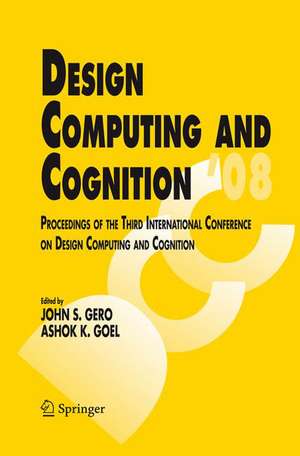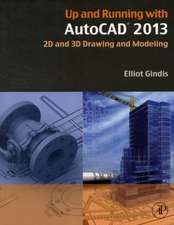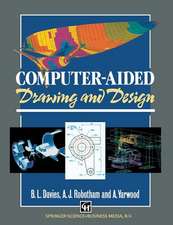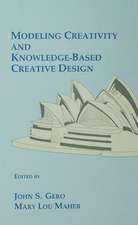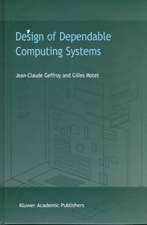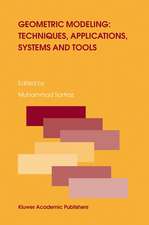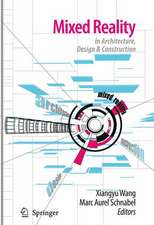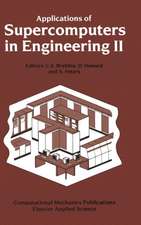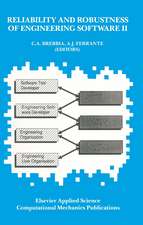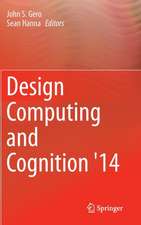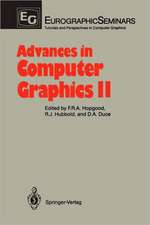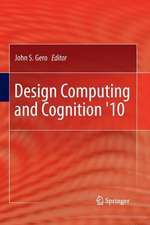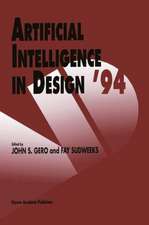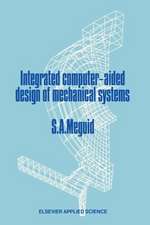Design Computing and Cognition '08: Proceedings of the Third International Conference on Design Computing and Cognition
Editat de John S. Gero, Ashok K. Goelen Limba Engleză Hardback – 24 sep 2008
| Toate formatele și edițiile | Preț | Express |
|---|---|---|
| Paperback (1) | 1294.03 lei 6-8 săpt. | |
| SPRINGER NETHERLANDS – 12 sep 2014 | 1294.03 lei 6-8 săpt. | |
| Hardback (1) | 1305.93 lei 6-8 săpt. | |
| SPRINGER NETHERLANDS – 24 sep 2008 | 1305.93 lei 6-8 săpt. |
Preț: 1305.93 lei
Preț vechi: 1632.40 lei
-20% Nou
Puncte Express: 1959
Preț estimativ în valută:
249.88€ • 260.92$ • 206.35£
249.88€ • 260.92$ • 206.35£
Carte tipărită la comandă
Livrare economică 15-29 aprilie
Preluare comenzi: 021 569.72.76
Specificații
ISBN-13: 9781402087271
ISBN-10: 1402087276
Pagini: 752
Ilustrații: XIII, 736 p.
Dimensiuni: 155 x 235 x 35 mm
Greutate: 1.36 kg
Ediția:2008
Editura: SPRINGER NETHERLANDS
Colecția Springer
Locul publicării:Dordrecht, Netherlands
ISBN-10: 1402087276
Pagini: 752
Ilustrații: XIII, 736 p.
Dimensiuni: 155 x 235 x 35 mm
Greutate: 1.36 kg
Ediția:2008
Editura: SPRINGER NETHERLANDS
Colecția Springer
Locul publicării:Dordrecht, Netherlands
Public țintă
ResearchCuprins
Shape Grammars.- Automating the Creation of Shape Grammar Rules.- Ontologies and Shape Grammars: Communication between Knowledge-Based and Generative Systems.- Categorisation of Designs According to Preference Values for Shape Rules.- A Technique for Implementing a Computation-Friendly Shape Grammar Interpreter.- Approximating Shapes with Topologies.- Design Cognition – 1.- Diagrams as Tools in the Design of Information Systems.- Form as a Visual Encounter: Using Eye Movement Studies for Design Reasoning.- The Role of Immersivity in Three-Dimensional Mental Rotation.- Comprehension of Layout Complexity: Effects of Architectural Expertise and Mode of Presentation.- Knowledge-Based Design.- GUITAR HERO, a Knowledge-Based System to Support Creativity in the Design and Manufacturing of Electric Guitars.- Discovering Implicit Constraints in Design.- Capturing Decisions and Rationale from Collaborative Design.- Extending the Situated Function-Behaviour-Structure Framework for User-Centered Software Design.- Empirical Examination of the Functional Basis and Design Repository.- Sketching, Diagrams and Visualization.- Is There Anything to Expect from 3D Views in Sketching Support Tools?.- Idea Development Can Occur Using Imagery Only.- Reaching Out in the Mind's Space.- From Diagrams to Design: Overcoming Knowledge Acquisition Barriers for Case Based Design.- Unraveling Complexity.- Design Creativity.- Compound Analogical Design: Interaction between Problem Decomposition and Analogical Transfer in Biologically Inspired Design.- A Model of Creative Design Using Collaborative Interactive Genetic Algorithms.- An Evolutionary Process Model for Design Style Imitation.- Design Cognition – 2.- Using Design Paradigms to Evaluate the Collaborative Design Process of Traditional andDigital Media.- An Empirical Investigation of Affordances and Conventions.- Novices' Satisfactory Design, Some implications for Performance and Satisficing in Character Design.- Roles of Negotiation Protocol and Strategy in Collaborative Design.- Design Support.- Ontology-Based Process Modelling for Design Optimisation Support.- Learning Symbolic Formulations in Design Optimization.- Automating the Conceptual Design Process: From Black-box to Component Selection.- A Case Study of Computing Appraisals in Design Text.- TRENDS: A Content-Based Information Retrieval System for Designers.- Spatial Configuration.- Urban Identity Through Quantifiable Spatial Attributes.- Discursive and Non-Discursive Design Processes.- Using Shape Grammars for Master Planning.- The Virtual and the Physical.- Interacting with Virtual Prototypes Coherently with Design Intent.- Conceptualizing Tangible Augmented Reality Systems for Design Learning.- Generative Fabrication.
Notă biografică
JOHN GERO is a Research Professor at the Krasnow Institute of Advanced Study and at the Volgenau School of Information Technology and Engineering, George Mason University and a Visiting Professor at the Massachusetts Institute of Technology. Formerly he was Professor of Design Science and Co-Director of the Key Centre of Design Computing and Cognition, at the University of Sydney. He is the author or editor of 43 books and over 550 papers in the fields of design science, design computing, artificial intelligence, computer-aided design, design cognition and cognitive science. He has been a Visiting Professor of Architecture, Civil Engineering, Mechanical Engineering, Computer Science or Cognitive Science at MIT, UC-Berkeley, UCLA, Columbia and CMU in the USA, at Strathclyde and Loughborough in the UK, at INSA-Lyon and Provence in France and at EPFL-Lausanne in Switzerland. His former doctoral students are professors in the USA, UK, Australia, India, Japan, Korea, Singapore and Taiwan.
He has been the recipient of many excellence awards including the Harkness Fellowship, two Fulbright Fellowships, two SRC Fellowships and various named chairs. He is on the editorial boards of numerous journals related to design science, computer-aided design, artificial intelligence and knowledge engineering and is the chair of the international conference series Artificial Intelligence in Design, the new conference series Design Computing and Cognition and the international conference series Computational Models of Creative Design.
He has been the recipient of many excellence awards including the Harkness Fellowship, two Fulbright Fellowships, two SRC Fellowships and various named chairs. He is on the editorial boards of numerous journals related to design science, computer-aided design, artificial intelligence and knowledge engineering and is the chair of the international conference series Artificial Intelligence in Design, the new conference series Design Computing and Cognition and the international conference series Computational Models of Creative Design.
Textul de pe ultima copertă
This is the third volume of the new conference series Design Computing and Cognition (DCC) that takes over from and subsumes the successful series Artificial Intelligence in Design (AID) published by Kluwer (now Springer) since 1992. The AID volumes have become standard reference texts for the field. It is expected that the DCC volumes will perform the same role. Design Computing and Cognition’04 and Design Computing and Cognition’06 both edited by John S Gero, were published by Springer.
This new biennial conference series provides an international forum for the presentation and discussion of state-of-the-art and cutting-edge design research. The conference proceedings will form a continuing archive of design computing and cognition research.
Design is a fundamentally important topic in disciplines ranging from the more commonly associated fields of architecture and engineering to emerging areas in the social sciences and life sciences. Design is the key to economic competitiveness and the fundamental precursor to objects - both physical and virtual - and services.
The conference theme of design computing and cognition recognizes not only the essential relationship between human cognitive processes as models of computation but also how models of computation inspire conceptual realizations of human cognition.
A CD-rom is included.
This new biennial conference series provides an international forum for the presentation and discussion of state-of-the-art and cutting-edge design research. The conference proceedings will form a continuing archive of design computing and cognition research.
Design is a fundamentally important topic in disciplines ranging from the more commonly associated fields of architecture and engineering to emerging areas in the social sciences and life sciences. Design is the key to economic competitiveness and the fundamental precursor to objects - both physical and virtual - and services.
The conference theme of design computing and cognition recognizes not only the essential relationship between human cognitive processes as models of computation but also how models of computation inspire conceptual realizations of human cognition.
A CD-rom is included.
Caracteristici
Cutting-edge research in design computing and design cognition from internationally recognized researchers
